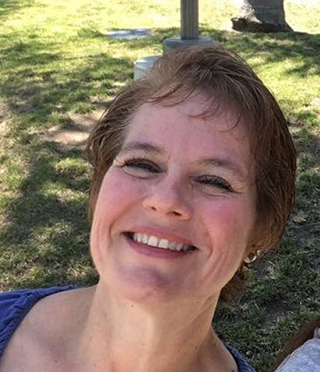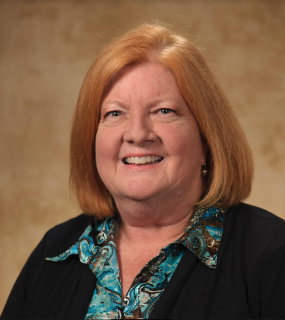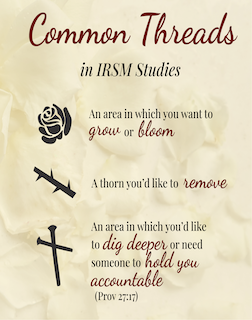-
12 Apostles – Unity in Prayer
Written by Alina Muraru, volunteer with Iron Rose Sister Ministries in Romania

We all know that prayer, the highest form of communication, is a privileged dialog between us and God, our Father who created us. What is unity? It is congruency between thoughts, feelings, will, words, and actions. In the past two years when I prayed to our Father, there were many times when I couldn't even utter the words because of the pain I was feeling inside.
I have no doubt that each one of us has faced different struggles—times that were handled easier/harder than others. During those hardships, I learned how important it is to be aware that God is always with me/us. Sometimes, so many times, we tend to forget, but even so, He is still with us, as stated in Matthew 28:20 NASB:
…and behold, I am with you always, to the end of the age”;and Deuteronomy 31:8: “And the Lord is the one who is going ahead of you; He will be with you. He will not desert you or abandon you. Do not fear and do not be dismayed.”
Yes, God is always with us, and when we are praying together in unity as sisters in Christ, we experience God's presence at a deeper level. As Matthew 18:20 says, "For where two or three have gathered together in My name, I am there in their midst.”
We also know from the Bible that we have access to His presence by reading Ephesians 3:12. "... in whom we have boldness and confident access through faith in Him,"and Psalm 133:1, "Behold, how good and how pleasant it is for brothers to live together in unity!"
Unity among His people is so important to God. It pleases Him when He sees His people dwelling together in unity. This is also of great importance when we pray together. It was significant when the apostles of Jesus prayed to God to show them who was the one God desired to replace Judas. We can read about this in the Book of Acts, chapter 1, verse 14. “They all joined together constantly in prayer, along with the women and Mary the mother of Jesus, and with his brothers.“
Christian unity is the result of God bringing together people of different backgrounds, ethnicities, and social classes into one family, or body, by faith in Christ.
“Now you are Christ’s body, and individually parts of it.”(1 Cor. 12:27)
For you are all sons and daughters of God through faith in Christ Jesus. For all of you who were baptized into Christ have clothed yourselves with Christ. There is neither Jew nor Greek, there is neither slave nor free, there is neither male nor female; for you are all one in Christ Jesus.(Gal. 3:26-28)
Prayer not only connects us with our Creator but also to one another. When we pray to God together, we experience the most important, significant, and deepest communication that can exist, and we are certain that God is listening when we ask for things in faith, in wisdom, and in harmony with God's Word. "And whatever you ask in My name, this I will do, so that the Father may be glorified in the Son.If you ask Me anything in My name, I will do it" (John 14:13-14).
When we are too hurt to be able to utter some words to give content to our plea, the Holy Spirit is always there to act as an intermediary for us in prayer in concordance with God's will.
"Now, in the same way, the Spirit also helps our weakness; for we do not know what to pray for as we should, but the Spirit Himself intercedes for us with groanings too deep for words; and He who searches the hearts knows what the mind of the Spirit is because He intercedes for the saints according to the will of God." (Rom. 8:26-27)
It is also important that women who pray together,pray with the same mind and for the same purpose, encouraging one another and being content with what they already have.
-
A Legacy of Faith
Written by Deanna Brooks, volunteer with Iron Rose Sister Ministries in Arkansas

“Legacy” is defined as a long-lasting impact of action. We all have a legacy that goes in two directions: influence on us from those who went before us, and our influence on those who come along behind us.
Paul wrote in 2 Timothy 1:5 (ESV), “I am reminded of your sincere faith, a faith that dwelt first in your grandmother Lois and your mother Eunice and now, I am sure, dwells in you as well.”
Not everyone has a parent or grandparent to lead them. We need to be watchful for those we can help.
2 Timothy 2:2 is important in our walk of faith; it tells us to share what we know. “What you have heard from me in the presence of many witnesses entrust to faithful men, who will be able to teach others also.” Our legacy of faith is an ongoing chain where one shares what he learns, then that person shares with someone else… and the message continues to spread.
Think about how you learned to cook. For many of us, we were taught by a mother or grandmother, and when we had children, we taught them (and maybe some of their friends). Now we see our children teaching their children to cook. In our family, my grandchildren enjoy a pound cake recipe that goes back to my grandmother who married in 1913.
Our faith grows as we interact with those who have gone before us. Ask questions about how they came to faith or the special people who influenced them. Listening to others is an important part of inheriting a legacy of faith.
As we pass down that legacy, it is not always necessary to sit down with a Bible to teach. When you teach someone to bake a cake, mention Elijah and the widow of Zarephath in 1 Kings 17. When you turn on the faucet for water, talk about Rebecca drawing water for Abraham’s servant’s camels in Genesis 24. Short, simple comments plant the seed for more in-depth study.
My grandmother was blind from the time I was 10, but she could relate beautiful word pictures. She and Grandad always got to know the children in the neighborhood where they lived, especially the “unchurched,” and when these children would come over for homemade cookies and milk, my grandparents would tell them Bible stories. Some of these children are now preachers, elders, deacons, and Bible class teachers.
Opportunities to share our faith are all around us. The Bible is full of everyday events that tell of God’s Message, and we can use similar times in our lives to connect with that message.
We have been given a beautiful story… One more important than the trivial conversations we often have.
The simple story we need to be able to share has these highlights:
- There is one God who created the world, including man.
- Man sinned, destroying his relationship with God.
- God loved man… Genesis 3 contains the first prophecy of a Redeemer to restore that relationship.
- Over 800 Old Testament prophesies tell of the coming Messiah.
- Jesus the Christ came to earth, lived a sinless life, was crucified, buried, and rose on the 3rd day. He returned to His Father until the time when He will come back to take us home with Him to the Father.
- Faith in Jesus as the Christ, the Son of God is the beginning of our relationship with God.
- Repentance and immersion for the remission of sins follow as demonstrations of that faith.
- Continuing to live a faithful life takes us home to God.
In Deuteronomy 6:7, the Israelites are told, “You shall teach them diligently to your children, and shall talk of them when you sit in your house, and when you walk by the way, and when you lie down, and when you rise.” Sharing our legacy of faith is part of daily life.
Some of Jesus’ last words to His apostles were in Matthew 28:20, “…teaching them to observe all that I have commanded you.”
If the message is in our hearts, it is easy to be aware of times to share the good news. Let’s be sure we do!
-
All the Women
Written by Kat Bittner, volunteer with Iron Rose Sister Ministries in Colorado

“When we denigrate a woman, we are in fact diminishing part of the image of God.”–Christine Caine, Unashamed
My husband has often remarked that, historically, women’s suffering lies in the hearts of men. He believes the lack of regard for women is rooted in men who did not and do not “see” women as God intended. And if men had regarded women as Jesus did in His relationships with them, no woman would have ever felt slighted.
If we know anything from Jesus’ relationships, it is that they were intentional. They had a clear purpose and were focused even from the moment His first relationship was contrived (1 John 4:14, Matt. 1: 21-23). Jesus’ relationship with the twelve apostles, with those He healed and to whom He ministered were all purpose-driven relationships. And that intentionality was also poured into the many women in Jesus’ circle.
The first woman in Jesus’ circle was His mother, Mary. She was a model of godliness, a woman who “found favor with God” (Luke 1:30, NLT), and she was an intimate witness to Jesus’ divine nature and purpose (Luke 1:31-35). Mary was a key player in the first public miracle of Jesus (John 2:1-11). And as the mother of the most Holy, she had what was probably a very daunting task. To care for and raise the Savior of the world, the One by whom she herself would be delivered had to be most intimidating. Yet she was honored and cherished by Jesus, exemplified by His declaration to ensure that she was properly cared for after He died (John 19:26-27).
Also counted among Jesus’ personal circle of women friends were Martha and Mary. Scripture tells us that “Jesus loved Martha and her sister” (John 11:5, NKJV) and that these women passionately served and learned from Jesus (John 12:1-3, 7; Luke 10:38-42). Through these women Jesus taught that fulfilling our spiritual responsibilities should be of utmost importance. Women, too, are called to learn from Jesus, apply the Word of God and be disciples. Additionally, Jesus’ love for them and their brother, Lazarus, was the impetus for raising Lazarus from the dead thereby witnessing God’s glory to a multitude. That was the kind of intentional relationship Jesus had with Mary and Martha. Jesus valued it. He valued them.
And then there’s Mary Magdalene, a woman who is almost always mentioned first among the female disciples and leaders (Mark 16:9; Luke 8:2; Matt. 27:56, 61). After being “healed of evil spirits and deformities… out of whom had come seven demons” (Luke 8:2, NKJV), this Mary dedicated her life to Jesus and was with Him when He died (Luke 8:1-3; John 19:25). Perhaps the most intentional thing to happen to Mary Magdalene was to be the first witness of Jesus’ resurrection (John 20:11-18). Women were not known for being credible witnesses in that age, so it was a purposeful and focused thing to have Mary first testify that Jesus had risen from the tomb.
Jesus also surrounded himself with many other women who played important roles in His ministry (Mark 15:40-41).Luke tells us about several women who helped support Jesus and the apostles “out of their own means” (Luke 8:3, NIV). These included Joanna, who managed Herod’s household, Susanna and many others. They fed Jesus’s ministry, literally and financially. Also mentioned are the “many women” who “had followed Jesus from Galilee to care for his needs” (Matt. 27:55-56). After His ascension, many women were among those who were carrying out the Great Commission in varied roles (Rom. 16:1-15; Acts 1:12-14; Acts 18; Acts 21). Phoebe the deaconess, the daughters of Philip who were prophets and Junia who was imprisoned and “outstanding among the apostles” (Rom. 16:7) were women who labored to expand the Kingdom.
Jesus bestowed a special honor on women. His regard for them, though revolutionary for the times, highlighted the way God intended for women to be valued. God said, “Let us make human beings in our image, to be like us….in the image of God He created them, male and female He created them” (Gen. 1:26-27, NLT).
Psalm 46:5 – God is within her…..
Because men and women were made in the image of God, God cannot be fully reflected without a woman. When we minimize women, relationally or otherwise, we minimize the image of our Lord and Savior.
Don’t you see the intention behind human creation? There is a clear, divine purpose for man and woman. We are to be image bearers and a living witness of God. If we wrap our heads around that, we cannot help but acknowledge our worth and value. Jesus and all the women were intentional relationships that embody the essence of God. That just blows my mind!
-
And the Curtain was Torn!
Written by Deanna Brooks, volunteer with Iron Rose Sister Ministries in Arkansas

When we read through Scriptures, we see God has pursued a relationship with man from the beginning. He walked with Adam and Eve; He called Abraham to follow Him; Moses was chosen by God to lead the Hebrews from Egypt and become His people in the Land of Promise.
The Old Covenant was given through Moses; the New Covenant came through Jesus Christ (John 1:17).
Under the Old Covenantthey had:
- A set of laws written in stone where God outlines acceptable behavior and sinful behavior.
- An earthly high priest through the line of Aaron, who had to offer a sacrifice for his own sin first (Heb. 5:1-4) … and these sacrifices were repeated over and over with communication through priests and prophets.
- Rituals of purity and cleansing; sacrifices were offered for illness, childbirth, and sin. There were times of required fasting. The Sabbath was to be holy and a day of rest. Men went to Jerusalem three times a year.
- ONLY the High Priest was allowed in the Most Holy Place where the Ark of the Covenant was and where God came down to receive the sacrifice.
For centuries a curtain hid the area where the high priest entered once a year to make sacrifices for sin (Lev. 16), where God came down and hovered above the mercy seat to receive the sacrifice. The people never entered into this holy area.
But one Passover when the priests were offering the sacrifice of the lambs for the sins of the people, the thick, heavy curtain of the temple was torn from top to bottom. It was torn in two because another lamb was being sacrificed not too far away on the hill of Mount Calvary, and that lamb was Jesus—the perfect lamb—the perfect sacrifice which was being offered for all men for all time. Because of this sacrifice, Jehovah God proclaimed Jesus both Lord and Christ (Acts 2:36).
And behold, the curtain of the temple was torn in two, from top to bottom. And the earth shook, and the rocks were split. (Matt. 27:51 ESV)
This 30-foot-tall curtain was ripped from top to bottom, as though the hands of God reached down and tore it open, inviting you and me to have direct access to Him. Because the curtain was torn, we have direct access to the Throne of Heaven!
Because of that perfect sacrifice, our purification is through the blood of Jesus Christ which cleanses us as we are baptized into Him. Jesus' sacrifice was one time for all men. Our baptism is a one-time event that washes us clean. Our life of faithfulness and confession keeps us clean.
Under the New Covenant we have:
- Laws written on the heart (Heb. 10:16).
- A sinless Heavenly Priest (Heb. 9:24, 28, 10:12) who offered one sacrifice.
- The opportunity to meet with other disciples on the first day of the week to share the Lord’s Supper and worship our Heavenly Father.
- Adoption by God (Gal. 4:5). When we become followers of Jesus, the Hebrew writer says, “For he who sanctifies and those who are sanctified all have one source. That is why he is not ashamed to call them brothers” (Heb. 2:11).
- Jesus Christ, our Messiah as our sacrifice … not a bull or goat, as we read in Hebrews 10:10-12.
…we have been sanctified through the offering of the body of Jesus Christ once for all. And every priest stands daily at his service, offering repeatedly the same sacrifices, which can never take away sins. But when Christ had offered for all time a single sacrifice for sins, he sat down at the right hand of God.
In verses 19-23, Hebrews 10 goes on to say that because Jesus is our sacrifice, one sacrifice for all of us, we have access to our Heavenly Father through Him.
Therefore, brothers, since we have confidence to enter the holy places by the blood of Jesus, by the new and living way that he opened for us through the curtain, that is, through his flesh, and since we have a great priest over the house of God, let us draw near with a true heart in full assurance of faith, with our hearts sprinkled clean from an evil conscience and our bodies washed with pure water. Let us hold fast the confession of our hope without wavering, for he who promised is faithful.
In 1742, Charles Wesley wrote a hymn that contains these words: “With confidence I now draw nigh and ‘Father, Abba Father’ cry!” Those who lived before us under the Old Covenant could not have sung those words.
So, the important question for us is: Do we take advantage of our access to the Throne of Heaven as children and heirs of the Heavenly King?
-
Betrayal in Relationships: Jesus and Judas vs. Peter
Written by Marbella Parra, volunteer with Iron Rose Sister Ministries in Honduras

God created us as social beings with a need to relate to other people. We mostly enjoy sharing special moments of our lives with others. In the journey of our life, we meet people—and some of them stay with us. We develop friendships, and we support each other in happy moments as well as in difficult times. We call these people friends.
Proverbs 17:17 says, “A friend loves at all times, and a brother is born for a time of adversity” (NIV). On this path of relationships, situations can arise in which we are disloyal to that person who has trusted us. Yes, we are talking about betrayal—a pretty strong word, but real. I don’t think that anyone would like to be called traitorous, but the truth is that at some point in our lives we have failed in our relationships, and others have also failed us.
The Bible recounts two quite shocking cases of betrayal that cause us to reflect on our own relationships; they are Judas and Peter, two disciples who had the joy of sharing a close relationship with Jesus. They saw His miracles, walked with Him, ate at the same table, learned from His teachings, and accompanied Him in His ministry. They had a beautiful privilege—to be friends of Jesus. Similarly, we have people who share with us, know us, eat with us, go out with us, and laugh and cry with us. But relationships are always put to the test, and Jesus' relationships with Peter and Judas were no exception.
Let's first talk about Judas. In the gospels, we find few details about Judas, but it is known that he was a follower of Jesus and supported His ministry. It is also known that he had a soft spot for money; so much so that his greed led him to betray Jesus for 30 pieces of silver. Judas faced a very tempting opportunity that made him fall and lose the trust and friendship that Jesus had with him. Tragically, after falling and thinking about what he had done, he did not know how to handle the situation and ended his own life.
Then there is Peter, about whom we have more details in the Bible. He had an energetic and impulsive personality, and something that stands out about him is that he recognized Jesus as the Son of God, always ready to serve and work alongside Him. Peter was strongly involved in Jesus' ministry, but, like Judas, he underwent a test of faithfulness. Although in many moments he expressed his faith and love for Jesus, in a difficult moment when he had to express his beliefs and show loyalty to his Lord, he did not measure up and betrayed Him.
Likewise, our relationships go through moments of testing, and often we betray some. Perhaps we speak ill of our friends to others, turn our backs on them in difficult times, envy their achievements, and damage our long-standing relationships in many other ways. At other times, we are betrayed by others. But this is not the end of the story. As humans, we will fail, but the final test is how we behave after betraying others, including God, and also how we behave when others betray us.
We have 3 examples from which we can learn. The first two show us the importance of repentance when we are the ones who betray someone. Judas teaches us that we can take the “easy path”; he believed that he would solve everything by ending his life, but it would have been better to repent and genuinely change. We can take the easy road, pulling away from that special person, not talking to them anymore, and if we have failed, showing them an attitude of pride, and withdrawing without fighting for that friendship. Peter on the other hand, after making the big mistake of denying Jesus, had great pain in his heart and repented. After his betrayal, he changed his life, asked for forgiveness, and continued to serve his Lord faithfully until his death. Asking for forgiveness is the difficult path; many times it is hard for us to admit that we have failed and reach out to that person, perhaps out of shame, or perhaps out of pride, but in the end, fixing things with that special person that we have offended can redeem an important relationship in our lives.
And last but not least, we have Jesus, an example to meditate on when we are the objects of betrayal. He was a faithful friend who was always willing to forgive. Despite the failures of Judas and Peter, I am sure that He was willing to receive them again and give them another chance. Peter took advantage of this blessing and further strengthened his ties with Jesus; unfortunately, Judas did not. In Jesus, we have a great example of forgiveness when someone special betrays us. Although it hurts to be betrayed and produces enormous sadness, it is worth forgiving and rescuing those relationships that God has placed in our path.
Let us learn from the example of our Lord Jesus who was willing to forgive betrayal, and from Peter who was willing to admit his mistake and change completely for the good of his relationship with our Lord.
I want to invite you today to value all those special relationships that you have or have had. Is there any relationship that you can recover today through repentance or forgiveness?
-
Betrayal… God Can Resurrect Relationships
Written by Corina Diaz, volunteer with Iron Rose Sister Ministries in Argentina

It has happened to all of us: we have high expectations about a relationship with something or someone, and then we realize that the reality is completely different than what we expected.
Even Jesus, when realizing that He would be betrayed, kept in His heart the desire to pass that cup. “After he had said this, Jesus was troubled in spirit and testified, ‘Very truly I tell you, one of you is going to betray me’”(John 13:21 NIV).
Jesus knew that it was not Judas himself who initiated the betrayal, but He recognized that sinful action stems from an external influence. “Then Satan entered Judas, called Iscariot, one of the Twelve”(Luke 22:3). “As soon as Judas took the bread, Satan entered into him”(John 13:27a). It is very important to recognize that Satan is actively working to bring about betrayal in our relationships.
Dealing with these situations on a personal level can cause us anguish, and will affect how we deal with the reality of what has happened.
Jesus' outline was simple—only three steps:
- Accept the situation.
- Pray to the Father to process the feelings.
- Keep the heart open to give love.
It seems quite simple—and I assure you that it is not—but I also assure you that lowering expectations and accepting what comes, while cultivating a pure heart will make the path more bearable!
-
Better Than Jesus
 Written by Rianna Elmshaeuser, volunteer with Iron Rose Sister Ministries in Colorado
Written by Rianna Elmshaeuser, volunteer with Iron Rose Sister Ministries in ColoradoYears ago, a friend of mine was in trouble. She was in mental anguish and deep emotional pain. One particular night in a text conversation, she was using words and phrases that were quite alarming. I stopped to pray for her, “Lord, I know it takes a whole lot of guardian angels to keep me alive every day, but if you will send some over to my friend to strengthen her right now, I will stay home and try not to do anything too stupid for a while.”
I never mentioned this prayer to my friend. Several weeks later, I overheard her talking about that night and she said, “I just felt like extra angels were surrounding me in that moment.” My prayer may not have been the most flowery or impressive, but the Holy Spirit knew what I meant and helped me communicate to God what was needed.
More recently, I found myself in a situation where I needed wisdom and didn’t have time to go to the scriptures for guidance. A young person under my care had disregarded my instructions and her behavior was putting her physical safety at risk. I had to go on a search for her and when I eventually found her, I was fuming mad. Speaking to her immediately would have resulted in humiliating her publicly, so I decided to wait for a more private setting.
As I waited for the event to end and for everyone else to leave, I prayed to God for wisdom. By the time I was able to speak to her, God had answered my call and my planned speech had completely changed from one of anger and admonishment to a much more needed conversation of self-care and self-worth. I know that had the Holy Spirit not been there to guide me, things would have turned out very differently and probably much worse. With God’s help, we both left the conversation feeling encouraged, closer to God, and closer to each other.
Likewise the Spirit helps us in our weakness. For we do not know what to pray for as we ought, but the Spirit himself intercedes for us with groanings too deep for words. And he who searches hearts knows what is the mind of the Spirit, because the Spirit intercedes for the saints according to the will of God. (Rom. 8:26-27 ESV)
We are also promised wisdom through the Holy Spirit. James 1:5 says, “If any of you lacks wisdom, let him ask God, who gives generously to all without reproach, and it will be given him.”
In Matthew 10:19-20, Jesus is saying to His disciples,
When they deliver you over, do not be anxious how you are to speak or what you are to say, for what you are to say will be given to you in that hour. For it is not you who speak, but the Spirit of your Father speaking through you.
There are many other times when the Spirit has helped me remain calm in a tense situation, comforted me when I felt lonely and alone, or prompted me to reach out to a stranger or friend in need. Jesus was right (as usual) when He said One greater than He was coming to help us.
I have often thought how wonderful it would be to have Jesus here in person. Wouldn’t it be amazing to sit at His feet and listen to Him teach? What a blessing it would be to ask Him what to do in a particular situation. Who should I vote for? What should I say to repair this relationship? Am I doing a good job?
In John 14, verses 15-19, Jesus promises not to leave us as orphans but that the Spirit of Truth, a Helper, will come to us and live with us and in us. In John 16:7, Jesus says, “Nevertheless, I tell you the truth: it is to your advantage that I go away, for if I do not go away, the Helper will not come to you. But if I go, I will send him to you.”He also proclaims to His disciples in John 14:12, “Truly, truly, I say to you, whoever believes in me will also do the works that I do; and greater works than these will he do, because I am going to the Father.”
In 1 Corinthians 12, Paul talks about the spiritual gifts of healing, prophecy, speaking in and interpreting tongues, and miracles. But at the end of the chapter in verse 31 he says, “And I will show you a still more excellent way.” Immediately following is “The Love Chapter,” 1 Corinthians 13. Healing people and prophesying would be amazing “powers” to have, but Paul says even more excellent than being able to perform miracles is love. The Holy Spirit dwells in us and helps us to love each other as Christ loved us. Through love and the power of the Holy Spirit, we can perform “greater works” than Jesus did while on earth. Are you in tune with the Holy Spirit living in you? Do you believe what Jesus said?
-
Breaking the Generational Cycle
Written by Aileen Bonilla, volunteer with Iron Rose Sister Ministries in Ecuador

Breaking the generational cycle of disobedience is a very big responsibility placed on our shoulders by God. However, He promises to be by our side at all times, and not only this, He also promises to lighten our load because His yoke is easy (Matt. 11:28-30) and His grace is sufficient (2 Cor. 12:9-10).
With this in mind, let me share some thoughts about the generational cycle between Saul and his son Jonathan. The scriptures tell us that God chose Saul to be the first king of Israel. King Saul had serious character flaws, so why would God anoint such a man to rule His people? The answer may not be totally clear to us, but it is evident that God allowed this situation so that His people would realize that no human king could compare to Him, and that absolutely no one could be as good as God Himself.
Saul was an arrogant man. However, the position he had been given was not what made him prideful; it simply exposed what was already in his heart (Prov. 23:7). Being the first king of Israel certainly must have reinforced his pride. This king did not trust God: he made foolish and unwise oaths (1 Sam. 14:24), and he did not comply with God's commandments. This leads us to conclude that he did not fear God. He did not value even the life of his own son (1 Sam. 14:44); however, in spite of this, Jonathan decides in his heart not to be like his father.
The Bible describes Jonathan as a brave, strong man, and a good warrior, but it also describes him as a man of love (1 Sam. 18:1), a loyal friend, and a good son. Above all, he was a young man who feared God and lived to assure that nothing or no one would hinder Jehovah's purposes.
Jonathan knew that the Spirit of God was no longer in his father. Recognizing this truth was very critical, because everything Saul did was subject to his human nature, rather than out of a desire to please God. As a result, it was impossible to trust him. Jonathan decided not to be like his father. To make such a crucial decision, his bond with the Lord must have been very close since God is the only one who can help us break these generational chains.
Any one of us can choose not to follow the same destructive path as our parents if we grew up in a non-Christian family. Asking God to help us break those unfaithful generational cycles will bring light not only to our current family, but will also build future generations of believers, and God will pour out His blessings on all of them. It all begins with creating a close relationship with God. Then He will show us what sinful attitudes we have inherited from our unbelieving ancestors which will enable us to break the generational cycle and be transformed into faithful followers.
This is also a way of fulfilling the command of Jesus when He says, “If anyone comes to me and does not hate father and mother, wife and children, brothers and sisters—yes, even their own life—such a person cannot be my disciple”(Luke 14:26 NIV). Jonathan was not willing to sacrifice obedience to Jehovah for the unholy whims of his father. Many times, without realizing it, we carry bitterness in our hearts, because our parents were also bitter. We downplay the importance of church involvement because we do not believe that God requires this, and as if that were not enough, at least in Latin America, faithfully congregating every Sunday with the Lord’s church is no longer a priority.
Jonathan was clear about his purpose on this earth—to give glory to God at all times—even to the point of offering his own life so that his best friend David could live, assuring that the messianic lineage would continue its course until it reached Jesus. In the same way, we must fervently ask that God show His purpose for us so that we can live giving Glory to Him, and above all, accept His grace every day to break family yokes that are not healthy. Building a spiritual life that transcends for many generations depends on our effort and courage, but above all, it depends on the openness and sensitivity of our hearts toward the voice of God.Saul closed his heart to Jehovah; therefore, the Spirit of God left him.
Today, I first encourage you to pray and ask God to show you His purpose for your life. Second, ask Him to help you live for this purpose and, in this way, He will break every chain that ties you to the past.
-
Building Relationships with our Children and Grandchildren
Written by Brenda Davis, volunteer with Iron Rose Sister Ministries in Arkansas

Be careful, and watch yourselves closely so that you do not forget the things your eyes have seen or let them fade from your heart as long as you live. Teach them to your children and to their children after them. (Deut. 4:9 NIV)
While barely mentioned in the New Testament, two Christian women, Lois and Eunice, were no doubt familiar with this scripture due to their Jewish heritage. It is evident that they practiced this teaching because we read of the influence they had on their grandson/son, Timothy, one of the most impactful missionary preachers in the early church. Here are the only two passages that mention these women:
I am reminded of your sincere faith, which first lived in your grandmother Lois and in your mother Eunice and, I am persuaded, now lives in you also. (2 Tim. 1:5)
Now Paul also came to Derbe and to Lystra. And a disciple was there, named Timothy, the son of a Jewish woman who was a believer, but his father was a Greek, and he was well spoken of by the brothers and sisters who were in Lystra and Iconium. (Acts 16:1)
If only we knew more about the specifics of how they raised Timothy. Did they give him time out when he misbehaved? Did he have a curfew? Did they make him go to church when he didn’t want to? We can be sure that, like us, they were not perfect as grandmother and mother. But we know that despite their imperfections they were successful in raising someone who chose to devote his life to Christ and His church, as we read in 1 Corinthians 4:17.
So, what can we learn from these women? We learn that the relationship between us and our children and grandchildren is incredibly impactful—even essential—to their spiritual upbringing. We also learn that even if our spouse is not a believer, we can still have a relationship that results in blessing these young souls. Acts 16:1-2 tells us that while his father was a Greek unbeliever, Timothy’s mother was still successful in teaching him about Christ.
It is universally agreed that the relationship between a mother and child is important. But there are also multiple verses and examples in the Bible that show us the importance of grandparents and the positive and negative results of this relationship. Whether we live near, or even with, our children or grandchildren, or clear across the country or the world, we are still called to maintain a relationship that will strengthen their relationship with the Lord. Author Mickey Elliott says, “It is the grandparent's responsibility to encourage, love, bring peace and unity. Never speak negatively about either parent to the grandchildren, but always encourage love, forgiveness, unselfishness, and understanding.”
How can we build and maintain these influential relationships?
- By example -living out our faith in words and actions.
But if a widow has children or grandchildren, let them first learn to show godliness to their own household.(1 Tim. 5:4 ESV)
Our children and grandchildren observe how we treat and serve others, how we react to life’s events, and whether or not we are striving to be like Jesus.
- By teaching -sharing God’s Word from day one at every little opportunity.
But as for you, continue in what you have learned and have become convinced of, because you know those from whom you learned it, and how from infancy you have known the Holy Scriptures. (2 Tim. 3:14-15 NIV)
Take advantage of “teachable moments,” sharing Biblical truths in everyday situations. This can be as simple as replacing, “What a beautiful day,” with “What a beautiful day God made for us,” as you look out the window together.
- By praying -unceasingly taking them before the throne of grace.
Do not be anxious about anything, but in every situation, by prayer and petition, with thanksgiving, present your requests to God.(Phil. 4:6-7)
Pray with and for them—their health, their choice of friends, their future spouses, and protection from the tempter.
An unknown writer has said, “Having [kids and] grandkids is a blessing. Helping to shape their lives is an honor,”andScripture supports this statement.I particularly like the Contemporary English Version’s rendition of Psalm 127:4-5, “Having a lot of children to take care of you in your old age is like a warrior with a lot of arrows. The more you have, the better off you will be.” And Proverbs 17:6 (NLT) tells us that “grandchildren are the crowning glory of the aged.”
May we all be mindful of the spiritual legacy we will leave our children and grandchildren.
-
Burdened Relationships
Written by Kat Bittner, volunteer and member of the Board of Iron Rose Sister Ministries in Colorado

“Carry each other’s burdens, and in this way you will fulfill the law of Christ” (Gal. 6:2 NIV).
“A true relationship is two imperfect people refusing to give up on each other” (Unknown). That could not be a more fitting description for us as humans in relationship with each other. Relationships are often hard. They take a great deal of commitment and effort on our part to be even the least bit fulfilling. Our sinful nature, clothed in selfish desire, often keeps us from working on relationships as we should. But like anything else in life that is good, we need to ensure that God is at the forefront of our relationships and that He is the reason we do what we do. “Whatever you do, work at it with all your heart, as working for the Lord, not for men”
(Col. 3:23).
God designed relationship, and He designed it to be a reciprocal effort; each person brings something to the relationship that is equally satisfying. Consequently, the best relationships are enveloped in a common love (1 Cor. 13:4-7). The best relationships build us up rather than tear us down (1 Thes. 5:11). The best relationships are burdened relationships.
Burdened relationships are those that involve mutual dependence on each other. We should be dependent on others (most assuredly our sisters in Christ) for several things. We need each other for guidance as “the heartfelt counsel of a friend is as sweet as perfume and incense,” and “as iron sharpens iron, so a friend sharpens a friend” (Prov. 27:9,17 NLT). We need each other for spiritual restoration for “…sisters, if another believer is overcome by some sin, you who are godly should gently and humbly help that person back onto the right path (Gal. 6:1). We need each other forinstruction on how to live as godly women (Titus 2:3-5).
Perhaps the most important thing we can do for each other as sisters in Christ is to share those things which encumber or afflict us. Sin and the struggles of life can weigh us down with extreme heavyheartedness. The burdensome stuff of life can discourage and weaken our spiritual state. We should never be embarrassed or ashamed to share those things which weigh heavily on our hearts. The adage “there is strength in numbers” is very true, especially when it concerns our spiritual health. The author of Ecclesiastes proclaims that “two are better than one because they have a good reward for their labor…and a threefold cord is not quickly broken” (Eccl. 4:9,12 ASV).
We cannot do life in any capable fashion without strong relationships. We must be willing to share our burdens with our sisters in Christ. In doing so, we afford them the powerful healing that comes from prayer, thereby encouraging them on to a better, stronger faith. “Pray for each other so that you may be healed. The earnest prayer of a righteous person has great power and produces wonderful results” (James 5:16, NLT).
Our burdens need to be shouldered by each other so faith can reach its crowning achievement.Faith is made stronger when our relationships with each other better mimic our relationship with God. When our relationships with each other are more authentic, transparent, and persevering, we can better cope with the heaviness that life brings us and others. Shouldering our burdens with one another is a key element for building good relationships because it also demonstrates selflessness. And we truly live by the tenets of Jesus’ teaching when we humble ourselves enough to selflessly carry the burdens of others (Phil. 2:3, Rom. 13:8; Gal. 5:13; 2 Jn. 1:6). Even more wonderful is that we can have our burdens shouldered by Jesus, too. In fact, He expects it of us. He whose burden is light asks us to burden Himself with our heaviness.“Come to me, all you who are weary and burdened….my yoke is easy, and my burden is light” (Matt. 11:28,30 NIV).
Sisters, we cannot afford to be stagnant or self-righteous in our relationships. Good relationships require effort and perseverance. We must be committed to working selflessly in our relationships if we are to be pleasing to God. Relationships can fuel our faith because they require a refusal to give up on each other just as God refuses to give up on us. God has “chosen you and will not throw you away”(Is. 41:9 NLT). A burdened relationship demonstrates a faithful work. It is a good thing! How will you be burdened by your relationships?
-
Celebrating Together
Written by Michelle J. Goff, Founder and Director of Iron Rose Sister Ministries
After nine long months of waiting, it was finally here! Not a baby, but what felt like “my baby” at the time. Late April 2014, after having filed all the paperwork for Iron Rose Sister Ministries to be registered as a 501(c)(3) nonprofit in the U.S., our letter of approval arrived, retroactive to our date of incorporation, July 26, 2013.
While most people don’t jump up and down when they receive a letter from the IRS, I did that day! Bounding inside from the mailbox, I couldn’t stop jumping up and down, squealing, unable to contain my excitement! But no one else was home. There was no one with whom to share my joy.
The two very large dogs that belonged to my sister and brother-in-law sensed the celebration and began jumping too, easily reaching my height. Thanking them for their exuberance, I clarified that the excitement was not really theirs to share. Retreating to a dog-free location, I debated who to call first who would share in my unbridled joy.
I did not want to celebrate alone. No one wants to celebrate alone. Those who have been with us in the struggle celebrate the most together in the victory.
We see this beautifully illustrated through three parables in Luke 15: The Lost Sheep, the Lost Coin, and the Lost Son (aka Prodigal Son).
The shepherd, after losing one of his hundred sheep, leaves the flock together and goes after the one that has strayed.
“And when he finds it, he joyfully puts it on his shoulders and goes home. Then he calls his friends and neighbors together and says, ‘Rejoice with me; I have found my lost sheep’” (Luke 15:5-6 NIV).
The same happens with the woman who lost one of her ten coins. “And when she finds it, she calls her friends and neighbors together and says, ‘Rejoice with me; I have found my lost coin’” (Luke 15:9).
Not coincidentally, both of those parables conclude with the direct interpretation of the parable: There is great rejoicing in heaven over one sinner who repents.
There is no more beautiful thing to celebrate together than a baptism, nothing more precious than someone who returns to God and His family after having strayed far from Him. Hallelujah! Amen!
I have tasted the joy and cried grateful tears at the return of a beloved child to her Father. Yet I have also been in the trenches of prayer through the watches of the night for those who have abandoned what they knew to chase other distractions, pursuits, or little “g” gods.
If you are the person who has strayed, please know that our Heavenly Father’s open arms are awaiting your return and that we will be there with Him and the angels, rejoicing! We can’t wait to celebrate your redemption together!
If you are the person who has someone close to you who has wandered from the Way, I grieve with you. It is a tremendous loss and sadness that no one wants to experience. However, I offer you the hope of the resurrection. While you grieve, maybe a child who has abandoned the teaching you know you provided, I want you to know that you are not alone. And please know that we Iron Rose Sisters are here to pray with you now and to celebrate together upon your child’s return. God loves him/her even more than you do, and He can’t wait to be the one to start the celebration!
“’Let’s have a feast and celebrate. For this son of mine was dead and is alive again; he was lost and is found.’ So they began to celebrate” (Luke 15:23b-24).
-
Choosing Who We Will Walk With
 Written by Beliza Patrícia, Brazil Coordinator for Iron Rose Sister Ministries
Written by Beliza Patrícia, Brazil Coordinator for Iron Rose Sister MinistriesThere’s a common saying in most parts of Brazil, “Tell me who you walk with and I’ll tell you who you are.” Repeated by mothers, grandmothers, and teachers, this saying has a very clear meaning: we are like the people we spend time with. But this understanding isn’t new. Amos 3:3 says, “Do two walk together unless they have agreed to do so?” (NIV)
Young Christians will hear 2 Corinthians 6:14 in innumerable Bible studies and classes. “Do not be yoked together with unbelievers. For what do righteousness and wickedness have in common? Or what fellowship can light have with darkness?” A yoke is a piece of wood that connects animals enabling them to work together, pulling a cart, for example. This way, the weight is equally distributed between the two. However, if the animals are too different, the yoke will distribute the weight of the wood unevenly, causing one of them to carry a load that is too heavy. In other words, the yoke will be unequal.
This illustration is often used as an alert about the difficulties of a Christian marrying a non-Christian. And this makes total sense: the union of marriage isn’t just physical! It’s also a spiritual union! But does this illustration apply only to marriage? No! Whether we get married or not, we have relationships with others who participate in and influence our lives. Therefore, we need to be attentive and have clear criteria when choosing who we will walk with. But why?
Maybe you think, “I’m strong! I can carry the yoke!” Let’s look at the explanation that the scriptures provide about why we shouldn’t put ourselves in the position of being unequally yoked, showing the differences that make a Christian incompatible with the sin of the world that 1 John 5:19 tells us is controlled by the evil one.
What harmony is there between Christ and Belial? Or what does a believer have in common with an unbeliever? What agreement is there between the temple of God and idols? For we are the temple of the living God. As God has said: “I will live with them and walk among them, and I will be their God, and they will be my people”. (2 Cor. 6:15-16)
- Righteous vs. Wickedness— Jesus came to justify (make us right), taking away sin; now whoever believes in Jesus lives for righteousness, not for evil.
- Light vs. Darkness — Sin and the lies of the world are darkness but the truth of Jesus illuminates the life of the believer.
- Christ vs. Belial — The term Belial was associated with Satan, as the expression in Hebrew means worthless; in other words, Christ’s adversary. The believer lives for Christ and is the devil’s enemy.
- Believer vs. Nonbeliever — The believer believes in Jesus and doesn’t reject Him.
- Temple of God vs. Idols — The believer has Jesus living within them, which is why they are a temple of God; therefore, they cannot worship other gods.
This biblical passage emphasizes all the things that we as Christians should not associate with. Second Corinthians 6:14 says, “Don’t team up” (NLT); in other words, we can be the ones who put ourselves in situations like this and decide to live unequally yoked. However, it is important to clarify that the passage does not refer to isolation. Avoiding an unequal yoke does not mean distancing ourselves from people who aren’t Christians, but rather from the wrong things they do.
We are called to build real and deep friendships with nonbelievers, spreading the love of Christ, but we cannot agree with sin, nor participate in it (John 17:15-18). When we are among people who are not Christians we should give testimony of Jesus Christ, and oftentimes this involves knowing how to say no in many situations. Jesus Christ always walked among corrupt people and gentiles, but He never contaminated Himself with their sins, He didn’t accept or conform to their behavior, and He showed them the path of light by preaching the gospel and repentance.
Are you choosing your associations wisely?
-
Commitment, Trust, and Vulnerability
Written by Nilaurys Garcia, volunteer with Iron Rose Sister Ministries in Canada

I am blessed to say that I have true friends, even if these are not many. Friends that I can share my joys with, problems, and that, above all, they will hold me accountable if at any time I committed to do something and I did not fulfill it. Maybe you're thinking you don't like those friendships but let me explain a little more. I’m talking about those people who are in my inner circle and to whom I have given the right and they have accepted the obligation to help me follow a better path. Those I can be vulnerable with and recount my struggles with, mostly when I need that reminder of who I am and why I should do or not do something.
A word that creates mixed feelings in me is "vulnerability." I would prefer to think that I am strong, and it is easier to keep the mask on that says I-can-deal-with-everything-that-life-throws-at-me. You are probably laughing with me at this moment when you remember all the times that we have fallen, just for thinking like that. If we are honest with ourselves, we can admit that we do not like to be vulnerable, delegate control, or much less be held accountable for our own words. I like to remember Hebrews 10:24 that says, "Let us consider how we may spur one another on toward love and good deeds.” (NIV)
And one of the reasons I don't like to be vulnerable is because it's easier to get hurt. That's why I can’t be vulnerable with everybody, but only with those who I know won't take advantage of me and won't hurt me. Now, who better to be vulnerable with than God and leave Him all our burdens, as we are invited to do in 1 Peter 5:7. “Cast all anxieties on Him because He cares for you."
Would we be able to leave our burdens, fears and worries to a complete stranger? I don’t think I could do it. It's too risky and I would feel too vulnerable to do it. The good news is that we don't have to depend on or trust a complete stranger. We have a Heavenly Father who only wants our good, would never hurt us, and gave us wonderful blessings as a gift for our lives. In addition, we can have people close to us that we trust and commit to helping each other become better. Yes, it is a commitment. There may not be a ring or a friendship bracelet, but there is the willingness and commitment by each one to make that relationship flourish.
If we want to develop our relationship with God and our inner circles, we need to start by knowing them more, by trusting them and, you guessed it, committing ourselves to being vulnerable with them. In my experience, when my relationship with God is firm, I also can be better with my close people and if I am failing at something, I am convinced that they will help me get back on the right path, even without being asked to do so at the moment. Every time my human nature tries to do what it wants instead of what it was called to do, David’s statement in Psalm 31, verse 14 comes to mind, “But I, Lord, trust in You and say, ‘You are my God.’
Personally, it is a contract or commitment with God, because it is a relationship that began by paying the highest price that could have been paid, the life of Christ crucified on a cross. I would like to invite you to develop a commitment to God based on vulnerability, because that will then lead you to develop an intimate circle that gives you the support, joys, correction, and everything you need to get closer to God. Remember that we are not alone and are immensely loved, but… yes, there is a “but,” we must be willing to trust if we really want it to work out.
-
Common Threads
Written by Michelle J. Goff, Founder and Director of Iron Rose Sister Ministries
There is nothing more frustrating than trying to slice a tomato with a dull blade. Therefore, we sharpen it. When iron sharpens iron, sparks fly. It is a natural byproduct of the necessary sharpening process.
While living in Venezuela, there was a certain whistle-like tune the sharpener used as he walked the streets, advertising his services. Spiritually speaking, there is no special whistle to recognize those who are gifted in this area, but thankfully, God does not expect us to know how to sharpen ourselves on our own. He has provided others to help us.
Sharpening, like growing, is an ongoing process. It is not a one-and-done. It is like sanctification or transformation that God continually facilitates through His Son until we meet Him in heaven.
In God’s roles as Teacher and Lord, He walks with us and guides us, comforting and correcting, training us in righteousness. He provides us with the example of His Son in whose steps we can follow (1 Pet. 2:21) and the support of His church that serves alongside us.
As we continue to walk in the light as He is the Light (1 John 1:5), we recognize areas in which we need to be transformed more and more into the image of Christ (2 Cor. 3:18). Those areas may be obvious to us or may be more elusive to identify. They often appear as a dulled spiritual blade as we enter a spiritual battle. You are not fighting this struggle alone. We can strengthen one another as iron sharpening iron.
Since Iron Rose Sister Ministries was established, the Common Threads have served as the three elements of the logo in personal and practical application. They can be found as a part of each chapter of the interactive Bible study books. They are designed to be shared and prayed over in a small group context—from three to eight women.
The images below are the updated version of the Common Threads from our new three-language logo.

The Common Threads are unique to each woman and her current place in life. Yet they are often intertwined. For example, when we want to grow or bloom in an area, we must first remove the thorn—whatever hinders and the sin that so easily entangles (Heb. 12:1). Of course, if the thorn is a sin, it must go! However, at times, we have thorns like the one that Paul begged the Lord to take from him. Yet God replied, “My grace is sufficient for you, for my power is made perfect in weakness” (2 Cor. 12:9 NIV).
Our area of emphasis for growth or the thorn of hindrance may be the same area in which we want to dig deeper (in Bible study or in understanding) or need someone to hold us accountable. You will notice that the image of iron sharpening iron is two nails in the form of a cross. A part of our humble service to one another is to lovingly sharpen one another and deepen together our relationships with God and each other, all while cheering one another on as we are transformed into the image of Christ.
Whether inspired by a Bible verse from this post, a recent sermon, or something else God has been revealing to you, invite at least one Christian sister, an Iron Rose Sister, to share in the Common Threads with you. You will both be richly blessed in your fulfillment of the Proverb 27:17.
“As iron sharpens iron, so one person sharpens another.”
Personally, I ask you to join me in prayer that I will bloom in my acceptance of God’s grace in my weakness. It is an easy trap for me to want to do it all on my own. That pride or personal strength can be a thorn that God has called me to set aside so that He is glorified in all He does. I have Iron Rose Sisters who sharpen me by reminding me of my physical limitations, while acknowledging my desire to serve in more ways than I am able. I am digging deeper into my understanding of God’s abundant provision and His delight in using all of us to accomplish His will and grow His Kingdom.
What are your Common Threads this week?
-
Complicated or Toxic Relationships
 Written by Kara Benson, volunteer with Iron Rose Sister Ministries in Alabama
Written by Kara Benson, volunteer with Iron Rose Sister Ministries in AlabamaA precious camp counselor (we will call her Elizabeth) shared a memorable anecdote with me. Elizabeth had been married, but her husband sadly fell into sin and decided to be with another woman. After time had passed, the other woman wanted to learn about Jesus. Unsure of who else to ask, she approached Elizabeth. Elizabeth said she will never forget sitting in her kitchen, sharing the gospel with the woman who had stolen her husband and wreaked havoc on her life. It was the hardest thing she ever had to do. But saving a soul was more important than her heartache; she set aside her damaged feelings for a higher purpose.
Elizabeth maintained a degree of distance from the other woman to protect her heart. It is okay and healthy to set boundaries with other people. In his podcast Excel Still More, Kris Emerson describes how the apostle Paul did precisely that. Two missionary journey companions he had previously trusted were no longer allowed to travel with Paul after they had deserted him: Demas and John Mark. After traveling with Paul and participating in his ministry, Demas deserted Paul “because he loved this world” (2 Tim. 4:10 NIV). In his previous letter Paul affirmed that God, “wants all men to be saved and to come to a knowledge of the truth” (1 Tim. 2:4). We see a desire for mercy on those who had deserted him in 2 Timothy 4:16. Despite this desire, Paul could no longer trust Demas and warned Timothy about him.
There can be Christians who we are unable to trust because of their continued bad choices. We still love and care for them. Loss of trust is neither desiring nor determining condemnation; rather, placing boundaries is protection. Scripture teaches, “Do not be deceived: bad company corrupts good character” (1 Cor. 15: 33). We don’t want unhealthy influences in our lives. Having close relationships where we can influence someone for Jesus without being led astray requires balance. Second Corinthians 6:14 instructs us to not be unequally yoked with unbelievers. We might think we are strong enough, but we may find out that is not the case.
Therefore, we need to draw and maintain boundary lines. Those on the other side of those boundaries are still valuable people. Jesus teaches that the two greatest commands are to love God and love our neighbor (Mark 12:28-31). When the opportunity presents itself to maintain this balance and teach the truth, we should follow Elizabeth’s example and take it.
In Ecclesiastes, we are reminded of the value of mutual relationships in which “if one falls down, his friends can help him up” (Ecc. 4:9-12). Those we keep close should “help us up” by encouraging our strength and devotion. We can listen to their advice and trust them, for “those who walk with the wise will become wise” (Prov. 13:20). These are the people with whom we regularly communicate and feel safe opening up to. Through forming relationships with the trustworthy and wise, we build a support system that strengthens our faith and gives us the confidence and ability to influence others for Christ.
Due to their immense value, we need to prioritize building and reinvesting in healthy relationships that may have been neglected. This requires observing and appreciating their positive character, bringing them close, and deepening a relationship with them. We may need to take the initiative and discover how we can encourage the other person as well.
Conversely, if there is an unhealthy relationship that is hurting you or your relationship with God, it needs to be addressed. Jesus teaches us to cut off the hand or eye that causes us to sin (Matt. 5:29-30). If you have a relationship with someone who is leading you into sin or working against what you are trying to do for the Lord, it may need to be ended. If it cannot be ended, then limit the time you interact with that person. A little space might help you have a healthier faith and could benefit the other person. Pray, ask for God’s guidance, and read His Word before deciding.
While Paul and Barnabas were preparing for their second missionary journey, Barnabas wanted to take John Mark with them. In contrast, “Paul did not think it wise to take him, because he had deserted them in Pamphylia and had not continued with them in the work. They had such a sharp disagreement that they parted company” (Acts 15:38-39).
Paul could not trust John Mark because he had previously abandoned them. Later, however, Paul asked that John Mark be brought to him because John Mark had been “helpful to [him] in [his] ministry” (2 Tim. 4:11). As time passed, change must have taken place. From this, we can learn that there is hope for relationships to be restored. Our God is in the business of redemption and restoration; sometimes in this life, sometimes in the next.
No matter the outcome, “we know that in all things God works for the good of those who love him” (Rom. 8:28).
-
Complicated Relationships
Written by Aileen Bonilla, volunteer with Iron Rose Sister Ministries in Ecuador

Who has not been involved in a complicated relationship? I would dare to say we all have. Jesus was also in middle of these confusing relationships, obviously not because He caused any conflict, but rather because He lived in this fallen world. The reality is that relationships are not complicated, we are the complicated ones.
Different than us, Jesus had and has all authority to reproach those who have a conflictive heart. Those heart problems will be reflected whenever they open their mouths. He manifested in Matthew 12:34,
“For the mouth speaks what the heart is full of.”
The context of this quote is when Jesus cast out a demon from the body of a man who was blind and mute. The Pharisees were always attentive to everything Jesus did in order to accuse Him. They desired, with their whole heart, that Jesus die. This passage is one of the many scenes where the gospels reveal how difficult it was for Jesus to fulfill His ministry here in this world, where everyone was contaminated by evil.
We shouldn’t be surprised that, at some point, we will find ourselves in the middle of complicated relationships. We should have wise discernment to realize if we are the stumbling block. Just as the Pharisees were trying to tempt Jesus, we will be tempted. And ever since the fall in the garden of Eden, humans have been incapable of relating with others in the right way. We all have different temperaments. But what should be clear is that as Christians, and in spite of those internal conflicts, we do not have the right to treat others badly.
I remember when I studied gastronomy together with my husband, we met a girl that had kitchen experience. For her, everything we did was wrong. Every time the instructors taught something new, she considered it irrelevant. Also, when she made a mistake, she was incapable of recognizing her error. No one wanted to be near her, since she yelled and made fun of everyone in the group. Those same attitudes in Christians are weighed down by the “old self” (versus the new creation). And that is why we shouldn’t be surprised when there are difficult people in our congregations.
Proverbs speaks a lot about not aligning ourselves with people who are haughty, arrogant, angry, wise in their own eyes. The reason is because we will become like them. These people typically do not want to be helped. Since they’re already wise in their own eyes, they are hindering the work of God’s Spirit. In spite of being in the midst of these complicated people, Jesus remained blameless, and His Word says that He left us good works, good examples that we should follow (Eph. 2:10).
The Pharisees constantly attacked Jesus; they couldn’t stand that there was another Teacher better than them, because He taught by example. They were jealous of the Son of God, and this is a grave sentiment that destroys everything in its path.
The envious person wants everything at any cost, invalidating the other person. The jealous person is in constant competition with others. For this reason, many times, our workplace carries such weight, because there are those who are scheming for ill and pulling others into the situation. Even though we can’t always escape from an environment like this, neither should we be contaminated by it.
Also, there will be complicated relationships amongst our loved ones, be that children, brothers, sisters, parents, spouse, etc. At any moment, the rope tightens, but to reach that limit, it is because we have let the emotions pass. The emotions are capable of creating an entire theory because we first feel and then think (Goleman, 336). Nevertheless, we are called to be reconcilers to reflect God in our homes and wherever we go.
At one point in my life, I, too, was a complicated person, because many people had constantly hurt me and I decided back then to close my heart to friendships, to Christian brothers and sisters, and to anyone. I didn’t want to go out; I even suffered from depression. But God, in His infinite wisdom, showed me that in spite of the past hurt, I had to make the effort to leave that state of being. Today, I am much more open to expressing my emotions and letting things flow, always with caution, but by trying to help those who need it. When someone treats me badly, yells at me, offends me, and uses guilt to make me responsible for their emotions, I silently go to the Father, in complete silence, without even shedding a tear. And the Father speaks to me, “Be still, I AM God.”
-
Created with a Purpose
 Written by Crisamarie Rivas, volunteer with Iron Rose Sister Ministries in Ecuador
Written by Crisamarie Rivas, volunteer with Iron Rose Sister Ministries in EcuadorThe Bible, as a source of wisdom and spiritual guidance, reveals profound messages about creation and the purpose of humanity. Within this wonderful narrative, women are presented as beings created with a specific purpose, full of value and meaning. Through carefully selected Bible verses, let’s explore the role and importance of women in the divine plan, and how these truths can inspire us in our daily lives.
The Creation of the Woman: A purpose designed by God.
"It is not good for the man to be alone. I will make a helper suitable for him” (Gen 2:18 NIV).God created the woman as a help suitable for the man. The word "suitable" means adequate, appropriate, or complementary. This reveals that women are not mere companions, but play an essential role in the life and purpose of men. They were designed to be partners who bring unique skills, perspectives, and gifts.
Motherhood: A Purpose of upbringing and formation.
"She speaks with wisdom, and faithful instruction is on her tongue" (Prov. 31:26).The virtuous woman described in Proverbs 31 exemplifies the purpose of nurturing and training through wisdom. Women can influence and guide future generations with love, patience, and advice. As mothers, grandmothers, and mentors, their impact on the formation of character and values is incalculable.
Service and Ministry: A purpose of impact.
"... and also some women who had been cured of evil spirits and diseases: Mary (called Magdalene) from whom seven demons had come out; Joanna the wife of Chuza, the manager of Herod’s household; Susanna; and many others. These women were helping to support them out of their own means" (Luke 8:2-3).Women in Jesus' ministry were passionate followers and valued collaborators. These women were not only beneficiaries of His love and healing but also gratefully served Him. This highlights the purpose of women in service and ministry, demonstrating that their gifts and resources can be used mightily for the advancement of God's Kingdom.
From personal experience, I can say that I was created with a purpose since my birth because God has used me to leave a seed in the hearts of the people I have met. That is why I invite you who are reading this to wisely put into practice the purpose that God created in you.
In addition, we can find important examples of women who had a great purpose in the Bible: Esther saved her people from being killed, Mary gave birth to our Lord Jesus Christ, and Ruth left her home and customs out of love for her mother-in-law. Thanks to their offspring, David and Jesus were born. Thanks to them, we can understand that we were born for a special purpose and that God places us where we should be to fulfill His purpose in our lives.
I am sure that the Lord used me in my past and will continue to do so in my present and future, but for this, I must let Him use me according to His will.
As we reflect on these biblical truths about the purpose of women, it is important to remember that each woman is unique and has a personal role in God's plan. Regardless of traditional or cultural roles, women are called to embrace their divine purpose with courage and confidence.
Every loving interaction, every wise advice, and every act of service has an eternal impact on the world around us. Women are not simply companions, but leaders, educators, and bearers of light in the darkness.
In conclusion, the Bible reveals to us that women were created for an intrinsic and worthwhile purpose. As partners, mothers, leaders, and servants, women can positively influence the world and glorify God through their lives. May we embrace with gratitude and joy the purpose that God has given us, seeking to fulfill it with love and determination in every area of our lives.
-
David: His Prayers in Psalms and Communication with God
Written by Deanna Brooks, volunteer with Iron Rose Sister Ministries in Arkansas

When we think of David, we often think of the shepherd boy… the youngest in the family… who killed Goliath, spent years running from Saul’s anger, became king, took another man’s wife, and had him killed in battle.
There is more to David than those events. There is his heart—a heart devoted to God in constant communication.
Samuel told King Saul in 1 Samuel 13:14 (ESV), “The Lord has sought out a man after his own heart.” This was said when David was still a shepherd, before he slew Goliath. God saw David’s heart.
In 1 Chronicles 17:16, we see David’s HUMILITY. Nathan told David he couldn’t build the temple, but the Lordwas building a house for him: a dynasty of kings. “Who am I, O LORD God, and what is my house, that you have brought me this far?“
In Psalm 73, we find a description of David’s relationship with the Father and why Samuel described him as a man after God’s own heart. Additional passages show David’s constant communication with God in various situations:
LOVE and TRUST:
Psalm 18:1, “I love you, O LORD, my strength.”
Psalm 37:3, “Trust in the Lord and do good.”
RECOGNITION for WHO GOD IS:
Psalm 9:1, “I will give thanks to the Lord with my whole heart; I will recount all of your wonderful deeds.”
Psalm 19:1, “The heavens declare the glory of God, and the sky above proclaims his handiwork.”The rest of this Psalm continues to proclaim the majesty of God.
Psalm 40 is a prayer of THANKSGIVING for deliverance:
“I have not hidden your deliverance within my heart, I have spoken of your faithfulness and your salvation” (vs. 10).
OVERWHELMED by betrayal:
In Psalm 55, David pours out his heart because of the rebellion of his son Absolom. Ahithophel, one of his thirty mighty men and a trusted advisor, sided with Absolom.
He redeems my soul in safety from the battle that I wage, for many are arrayed against me. God will give ear and humble them… My companion stretched out his hand against his friends; he violated his covenant. His speech was smooth as butter, yet war was in his heart; his words were softer than oil, yet they were drawn swords… But I will trust in you. (55:18-23)
PROTECTION when fleeing from Absalom:
Psalm 3:3, “But you, O LORD, are a shield about me, my glory, and the lifter of my head.”
REFUGE:
God is our refuge and strength, a very present help in trouble. Therefore we will not fear though the earth gives way, though the mountains be moved into the heart of the sea…The Lord of hosts is with us; the God of Jacob is our fortress. (Ps. 46:1-2,7)
THANKSGIVING for God’s MERCY:
Psalm 103:8, “The Lord is merciful and gracious, slow to anger and abounding in steadfast love.”
WORSHIP and PRAISE:
Psalm 106:1-2, “Praise the Lord! Oh, give thanks to the Lord, for he is good, for his steadfast love endures forever! Who can utter the mighty deeds of the Lord, or declare all his praise?”
Heartfelt words of REPENTANCE after his sin with Bathsheba and murder of Uriah:
Have mercy on me, O God, according to your steadfast love; according to your abundant mercy blot out my transgressions. Wash me thoroughly from my iniquity, and cleanse me from my sin! … Restore to me the joy of your salvation.(Ps. 51:1-2, 12)
THANKS for ANSWERED PRAYER:
Psalm 116:1, “I love the Lord, because he has heard my voice and my pleas for mercy.”
Psalm 119 is a prayer of GRATITUDE for God’s Word: “Blessed are those whose way is blameless, who walk in the law of the Lord!(vs. 1) Then in verse 11, David gives one of the keys to knowing and doing God’s will, “I have stored up your word in my heart, that I might not sin against you.”
Being TRANSPARENT:
Psalm 139 closes with, “Search me, O God, and know my heart! Try me and know my thoughts! And see if there be any grievous way in me, and lead me in the way everlasting!” (vs. 23-24)
David allowed his life to be an “open book” before the Lord.
The Psalms show how David walked with God in all stages of life. He turns to God as we often do to a close friend who knows all our joys, hurts, and secrets, and that open communication molds David into a man after God’s own heart.
The prophet Jeremiah wrote, “You will seek me and find me, when you seek me with all your heart” (29:13). David’s life is one of seeking relationship with God through constant communication in complete faith and trust. Are you developing your relationship with the Father through regular communication?
-
Deepening Relationships Requires Commitment
Written by Michelle J. Goff, Founder and Executive Director of Iron Rose Sister Ministries
“Teaching and Learning through Relationships” was our 2023 theme. Thank you to the many writers whose voices expounded upon this through Scripture and those who shared their own stories of the practice lived out.
Relationships, whether in a formal or informal context, foster an environment for teaching, learning, modeling, and mentoring. Over time, those relationships deepen. Yet no relationship will deepen without a commitment to that relationship.
Luis and Faby Gómez and I, along with a few other Venezuelans who served briefly, collaborated to establish a new congregation in East Caracas. Early on, we compared the birthing of a new church to the birthing of a child. And when you are part of that process together, you are family for life!
We were there together in the highest highs and the lowest lows. As a new congregation, we prayed together, broke bread together, shared meals, spent time in the Word, and fellowshipped. As a team, we trudged through the challenging trenches of persecution, threats from neighbors, and the stumbles of baby Christians learning to walk in Christ. We taught, learned, and grew. We made mistakes and we forgave.
At a couple of points of deep despair and persecution, I remember reflecting on whether to continue. Prayerfully, we each made an individual and group commitment to God and to one another. We were going to persevere, stay the course, and trust God through the trials.
More than twenty years later, I reflect on those early years and the ongoing depth of family relationship I have with my friends Luis and Faby, as well as their boys, Daniel and Andrés. Having moved to Venezuela full-time when Daniel was only seven months old, I was delighted when his first word was, “Chel” (his “aunt name” for me).
Thankfully, we have been able to maintain a strong commitment to our familial relationships. They consider my parents their North American parents. People have often asked if I am Luis’ sister since I know so many of his stories as a boy and his family members. I visited Faby’s family more than once over the holidays and have even stayed with her brother and sister-in-law now living in Uruguay.
This depth of relationship and intimate knowledge of one another does not happen overnight. It requires commitment, sacrifice, and vulnerability.
Up until the pandemic halted my travel, I was able to see and continue Kingdom work alongside the Gómez family face-to-face, for at least a week, 16 years in a row. Lord willing, I will be with them again for a visit in August 2024.
I am eternally grateful to God for Luis and Faby, Daniel and Andrés, and for dozens of deep friendships as co-laborers in the Kingdom (Php. 1:5-6)! A history and pattern of transparency was established and furthered as Christian brothers and sisters. Many have not been easy, but with God at the center, they have been possible… because of our mutual commitment.
Commitment to God and commitment to one another are required for deepening relationships.
As we transition from an emphasis on “Teaching and Learning through Relationships,” I encourage you to keep those lessons in mind. “Commitment to Christ, 24/7 in 2024” cannot happen without relationships.
The greatest depth of relationship illustrated was between Father and Son when Jesus Christ became flesh and dwelt among us (Jn. 1:1, 14).
I challenge you today to renew your commitment to teaching and learning through our most vital relationship as followers of Christ. Through that commitment, depth will follow. Time, communication, and shared experiences will enrich a deep relationship with the Giver of Life. It is in Him that we can “live and move and have our being” (Ac. 17:28 NIV).
-
Different Shapes, Same Essence
 Written by Liliana Henríquez, volunteer with Iron Rose Sister Ministries in Colombia
Written by Liliana Henríquez, volunteer with Iron Rose Sister Ministries in ColombiaIn the same way that a sheet of paper can take on different shapes as origami figures, interpersonal relationships can be shaped in different ways according to the expectations we have. Naturally, we expect the people with whom we relate to have characteristics that are similar to ours: the same values, same points of view, liking the same things, etc. However, this is not always the case. In the course of my adult life, I have had friends who have only stayed next to me for certain seasons of my life, and other friends that I still have and with whom I maintain a close friendship. I've had friendships that I've had to let go of because we were not on the same page anymore and it was better to go our separate ways like Paul and Barnabas in Acts 15.
Expectations not only apply at the level of friendships and couples, but also in ministry and work life. I believe that it is valid to accept that sometimes we grow in different directions, that we have different personalities, and that, as a wise Spanish proverb says, “Cada cabeza es un mundo,” or “Every head is a world.” The most important thing is that we learn to have realistic expectations, know how to communicate with others so that the relationship is strengthened, avoid idealizing people, and be aware that regardless of the type of relationship we have, our essence should not change. We are Christians and above all, love and respect must prevail.
We are light and we must shine. (Matt. 5:14)
We are salt and we must give flavor. (Matt. 5:13)
We have the Holy Spirit, and we must bear Its fruit. (Gal. 5:22-23)
I know it hurts to leave friendships and relationships that we thought would last longer. But it is important to know how to identify when we are no longer the right companion for someone and when someone is not right for us because, in the end, we likely would end up hurting each other. The first priority should always be to fix or restore the friendship or relationship, but if after working through that whole process, harmony between both parties is not achieved, it is best to say goodbye.
It is important to choose wisely the people who will accompany us in the different seasons of our lives. When developing relationships, some healthy expectations that we should have, are with nurturing people who:
- Bring out the best in us.
- Bring us closer to God.
- Rejoice in our successes.
- Support us in our saddest moments.
"A friend loves at all times, and a brother is there for times of trouble." (Prov. 17:17 ISV)
I want to continue developing relationships with people who, regardless of our different shapes and personalities, allow me to maintain my Christian essence. I want to continue being light, salt, and bearing the fruit of the Holy Spirit in all my relationships. And you? What are your expectations at a relational level?
Page 1 of 5

